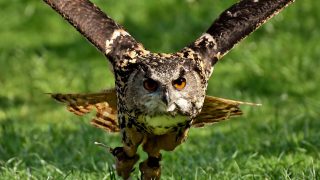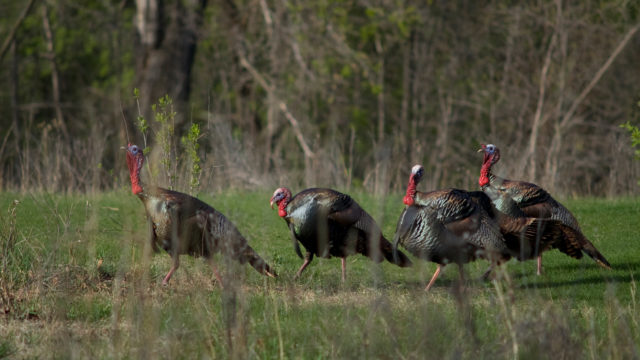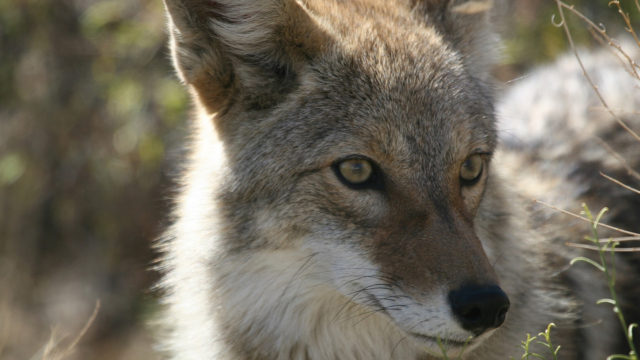
Jeffrey Bramson
 On June 26, 2014, the Animal Legal Defense Fund submitted a formal petition, along with co-petitioners Big Cat Rescue, Born Free USA, WildCat Haven, and Wildcat Sanctuary, to the California Department of Fish and Wildlife, proposing a rule to amend state regulations regarding the breeding and possession of controversial “hybrid cats.” These dangerous cats—part domestic cat and part wild exotic cat—can wreak havoc on wildlife and are often abandoned by their owners, and that’s why they are already banned or regulated in several states. Attorney Jeffrey Bramson has donated his expertise to the Animal Legal Defense Fund on this issue.
On June 26, 2014, the Animal Legal Defense Fund submitted a formal petition, along with co-petitioners Big Cat Rescue, Born Free USA, WildCat Haven, and Wildcat Sanctuary, to the California Department of Fish and Wildlife, proposing a rule to amend state regulations regarding the breeding and possession of controversial “hybrid cats.” These dangerous cats—part domestic cat and part wild exotic cat—can wreak havoc on wildlife and are often abandoned by their owners, and that’s why they are already banned or regulated in several states. Attorney Jeffrey Bramson has donated his expertise to the Animal Legal Defense Fund on this issue.
Jeffrey Bramson has always been concerned with our individual and communal responsibilities to society. He was raised in a small town in New York called Edgemont. During his sophomore year of high school, he read The Food Revolution by John Robbins, a book that examined the health, environmental, and moral implications of the meat industry. He has not eaten animals since. That book also triggered his consciousness about what he calls “our collective responsibility to ensure the well-being of our animal friends,” and he says “I have been a fierce advocate of animal rights ever since then.”
Jeffrey later attended Harvard University, where he studied economics and health care policy. After a year at Harvard Medical School, he attended Harvard Law School. The field of law appealed to him “because of its results-oriented focus: using the legal and regulatory systems to generate real results, whether for a client or as an advocate of a cause.” These days, he works for a Chicago-based firm called Kirkland & Ellis, where he works on securities litigation and complex commercial litigation. But he also dedicates a great deal of his time to pro bono work. For example, in 2013, Jeffrey helped the Animal Legal Defense Fund put together a public comment in support of “an HSUS petition to the USDA, in which we advocated for tighter restrictions on the public handling of bears, primates, and big cats in public exhibitions and zoos.” This petition was satisfying, he explains: “I enjoyed working with ALDF so much that I sought out further work, and have been working on our current petition” to regulate hybrid cats.
 What’s wrong with wild hybrid cats? “Humans have been domesticating and cross-breeding animals for thousands of years,” Jeffrey explains. “But the practice of hybridizing domestic cats with wild cats to produce interesting-looking pets is a relatively new and particularly dangerous development.” The process itself is traumatic for the cats, and that justifies banning the practice. But also, he warns, “when new species are generated, regulations fall into a grey area, and our ability to protect these animals is diminished.” For example, we still do not know if the rabies vaccine is effective in these animals.
What’s wrong with wild hybrid cats? “Humans have been domesticating and cross-breeding animals for thousands of years,” Jeffrey explains. “But the practice of hybridizing domestic cats with wild cats to produce interesting-looking pets is a relatively new and particularly dangerous development.” The process itself is traumatic for the cats, and that justifies banning the practice. But also, he warns, “when new species are generated, regulations fall into a grey area, and our ability to protect these animals is diminished.” For example, we still do not know if the rabies vaccine is effective in these animals.
Helping animal organizations as a pro bono attorney is so valuable to them. “As lawyers,” he says, “we have a duty to uphold the legal system, and in particular to ensure that it is functioning to protect everyone, especially the voiceless. It is easy for young lawyers to lose sight of that when exposed only to a narrow set of clients in a specific industry. And pro bono work on behalf of animals is important, because animals are the one group who otherwise has no access to the legal system.” Jeffrey Bramson lives in Chicago with his girlfriend (a veterinarian) and his furry friend Mya, a golden retriever/Collie mix.
The Animal Legal Defense Fund would never be able to use the law to advance the interests of animals without the pro bono support of legal professionals nationwide. In this continuing series of spotlights, ALDF salutes attorney Jeffrey Bramson.
How We Work
Related
-
Reward of $5,000 Offered in Case of Wild Turkeys Run Down By Pickup Truck
Under California law, any person convicted of maliciously and intentionally wounding an animal can be imprisoned for up to three years in county jail and/or fined $20,000 for felony animal cruelty.January 24, 2018 Press Release -
Reckless California Killing Contests Continue Despite Ban on Prizes
The rural town of Adin, California will hold its annual coyote killing spree despite the 2014 ban on prizes for killing furbearing animals in contests.February 3, 2015 News


